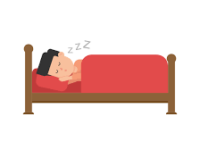When our heads hit the pillow at night, we are usually swept away by dreams that feel vividly real, despite the unbelievable things that might happen. However, sometimes the illusion is shattered when people become aware that they are dreaming while they are still asleep. This phenomenon is known as lucid dreaming, and it is starting to prove as a powerful tool for researchers to explore people’s minds by communicating with them in their sleep.
Lucid dreaming is a gray area of consciousness that involves aspects of both waking and dreaming. Although scientists still are not clear on why it happens, according to research done by Denholm Aspy, it’s possible that lucid dreamers “might tend to produce more of the neurotransmitters that pause REM sleep.” On top of that, a 2017 study found that there is increased activity in brain regions related to higher cognitive functions during lucid dreaming, like the prefrontal cortex, which includes working memory, self-consciousness, and self-determination. These factors come together to imitate a similar decision-making process compared to a wakeful state and allow people to control certain parts of their dream. People who naturally lucid dream have a larger prefrontal cortex and tend to be more self-reflective and open to new experiences, but anyone can become better at lucid dreaming by changing their habits and practicing the skill.
In a 2021 study, researchers at Ken Paller’s lab at Northwestern University were successfully able to hold a two-way conversation with participants who were lucid dreaming during REM sleep. Scientists asked study participants to answer simple math questions in their sleep by moving their eyes from left to right to indicate the solution. The eye movement was then detected by electrodes, and the answers were found to be correct.
This achievement opens up a whole new world of possibilities. If people could narrate their dreams in real-time, it could help scientists understand REM sleep and how to utilize the dream state to its fullest potential. The ability to intentionally dream about practicing certain tasks or skills could prove invaluable for many different reasons. As scientists dive deeper, lucid dreaming might be the gateway into the untapped world of sleep.


